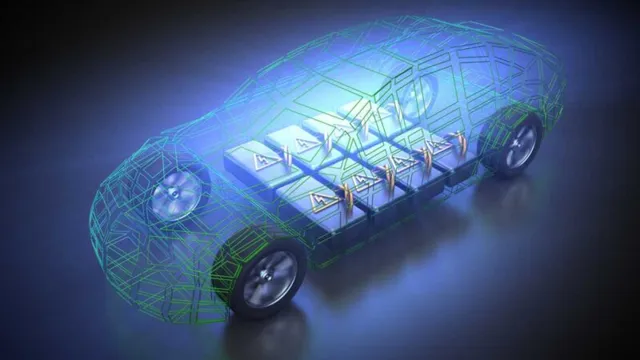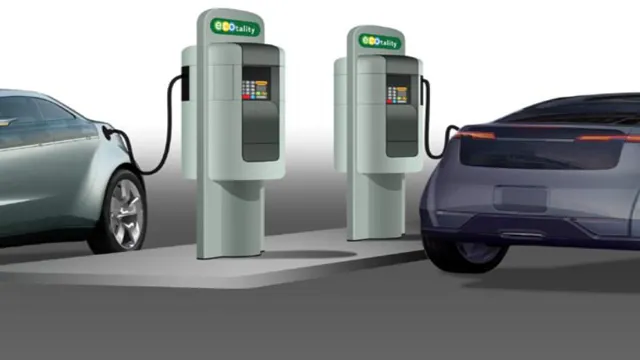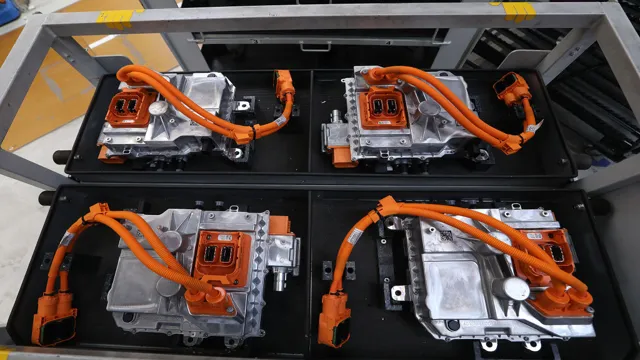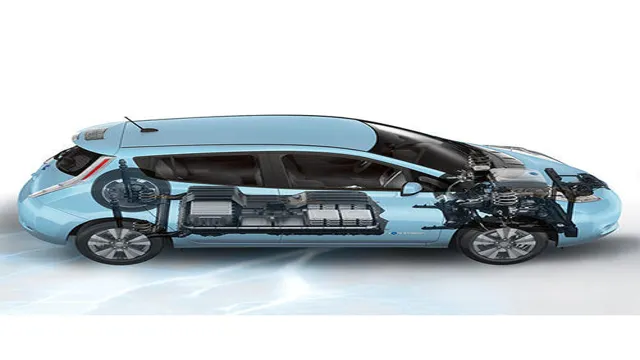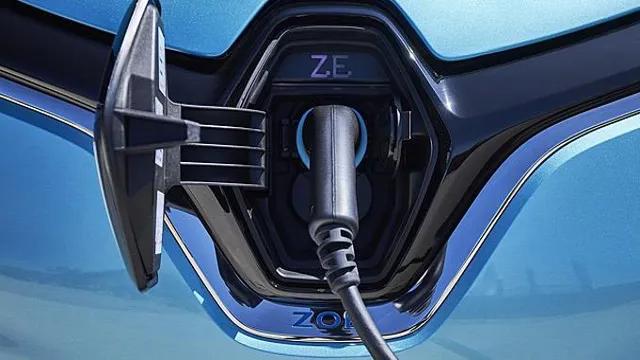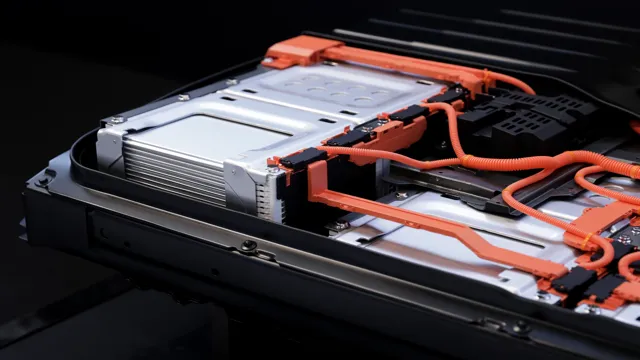Are Electric Car Batteries Worth the Investment? Debunking the Myths about the Cost of Going Green!
Electric vehicles have become increasingly popular in recent years, with more options hitting the market every day. While many are drawn to the idea of reducing their carbon footprint, one question often arises- are EV batteries expensive? After all, the battery pack is one of the most crucial components in an electric vehicle, so it’s natural to wonder whether it’s going to significantly impact the vehicle’s cost. In this blog post, we’ll dive into the topic of EV battery costs, examining the current state of the industry and addressing some common questions and concerns.
By the end, you’ll have a better understanding of whether an electric vehicle is a financially viable option for you.
Cost Comparison
Are batteries for electric cars expensive? The answer is relative. In terms of upfront cost, yes, they are more expensive than the traditional gasoline engine. However, the cost of batteries has been steadily decreasing over the years, making electric cars more accessible to the general public.
Moreover, the total cost of owning an electric car, including maintenance, electricity, and tax incentives, often offsets the initial investment. Additionally, compared to gas cars, electric vehicles have a lower cost of ownership in the long term, mainly because of the reduced fuel costs and simplified maintenance. Overall, while electric car batteries may seem expensive at the outset, the long-term benefits are undeniable, making them a worthwhile investment in the future of sustainable transportation.
EV Batteries vs Traditional Internal Combustion Engine
When comparing the cost of EV batteries versus traditional internal combustion engines (ICE), it’s important to consider both the initial cost and the long-term savings. Initially, EV batteries may seem more expensive, but when you take into account the cost of fuel and maintenance for ICE vehicles, EVs can actually save you money in the long run. Plus, as technology in EV batteries continues to improve, costs are decreasing and range is increasing, making them a more viable option for drivers.
While ICE vehicles may have slightly lower upfront costs, the overall cost of ownership for an EV can end up being much lower. So, if you’re looking to save money and also do your part for the environment, an EV may be the way to go.

EV Battery Prices in Today’s Market
As electric cars continue to gain popularity, the cost of EV batteries remains a crucial factor for potential buyers and automakers alike. The prices for EV batteries vary widely depending on the manufacturer, capacity, and type of battery. Typically, the larger the battery capacity, the higher the price, but the overall cost of EV batteries has been decreasing in recent years.
In 2010, the cost of a lithium-ion battery was around $1,000/kWh. By 2019, the cost fell below $200/kWh, and the industry target is to reduce the cost to $100/kWh by 202 The decreasing cost of EV batteries is good news for the EV industry as it helps to make electric cars more affordable and accessible to the general public.
However, it’s worth noting that EV batteries only constitute a portion of the overall cost of an EV, and other factors such as vehicle cost, charging infrastructure, and government incentives also play a significant role in promoting EV adoption. In conclusion, the decreasing cost of EV batteries is a positive trend in the EV industry, and it’s likely to continue as the technology improves and becomes more accessible.
Factors Affecting EV Battery Prices
Are batteries for electric cars expensive? Yes, they are one of the most expensive components of an electric vehicle. The cost of the battery depends on several factors like the size of the battery, the technology used in the battery, and the chemistry of the battery. The size of the battery depends on the range and power of the vehicle.
Larger batteries with higher power output and longer range will be more expensive than smaller ones. The technology used in the battery also affects the cost. More advanced batteries that can hold more charge, have a longer lifespan, and charge faster will be more expensive.
Lastly, the chemistry of the battery is also a factor. Lithium-ion batteries are the most commonly used batteries in electric vehicles and tend to be more expensive than other types. However, as battery technology continues to improve and becomes more common, prices are expected to decrease, making electric vehicles more affordable for everyone.
Battery Capacity
Battery Capacity, Factors Affecting EV Battery Prices One of the main drivers of electric vehicle prices is the battery, which can make up a large portion of the car’s overall cost. Battery prices are affected by a number of factors, including the size and capacity of the battery, as well as the materials used in its construction. Larger batteries tend to be more expensive, as they require more raw materials and are more difficult to manufacture.
Additionally, the type of battery can also impact its price; for example, lithium-ion batteries tend to be more expensive than lead-acid batteries. Other factors that can affect EV battery prices include supply and demand, as well as the cost of research and development. However, as more automakers begin to invest in electric vehicle technology, it’s likely that the cost of batteries will continue to decrease, making EVs more affordable for consumers.
Brand Name
When it comes to purchasing an Electric Vehicle (EV), one of the major concerns is the cost of the battery. The price of an EV battery varies depending on several factors. Brand name happens to be one of the most significant factors that affect the price of an EV battery.
Typically, batteries from well-known and reputable brands are more expensive than those from less popular brands. This is because established brands have built a name for themselves in the market, giving customers a sense of assurance about the quality of their products. However, it’s worth noting that brand name isn’t the only factor that affects battery prices.
Other factors worth considering include battery size, the technology used, and the amount of battery capacity an EV possesses. Regardless of the brand, an EV battery that offers higher range and faster charging will always come at a higher cost.
Government Incentives
Government incentives are a crucial factor in the adoption of electric vehicles (EVs). In many countries, government authorities offer various subsidies to incentivize the use of EVs. These incentives can come in the form of tax credits, rebates, or even direct cash payments.
Additionally, governments often provide funding to EV manufacturers to help develop new technologies and bring down prices for consumers. However, the availability and scope of these incentives can vary widely between countries, and even between different regions within the same country. This can create significant disparities in the affordability and accessibility of EVs for consumers.
As a result, it is important for policymakers to consider the impact of government incentives on EV battery prices when developing policies that aim to accelerate the growth of this technology. By understanding the factors that affect the cost of EV batteries, governments can make informed decisions about how to best promote the adoption of these vehicles among the general population.
Conclusion
In conclusion, the topic of whether batteries for electric cars are expensive boils down to a simple yet complex answer: it depends. Factors such as the type of battery, the brand, and the quality all play a role in determining their cost. However, one thing is for certain: the price of batteries for electric cars is sure to fluctuate as advancements in technology are made.
So, are batteries for electric cars expensive? The answer is not crystal clear, but one thing is certain – as our society moves towards sustainable transportation, investing in electric cars is a worthwhile and important decision for the present and the future.”
FAQs
How much do electric car batteries cost on average?
The cost of electric car batteries can vary widely depending on the make and model of the car, but on average, they can cost anywhere from $5,500 to $15,000.
Are electric car batteries more expensive than traditional car batteries?
Yes, electric car batteries are generally more expensive than traditional car batteries due to their larger size and capacity.
How often do electric car batteries need to be replaced?
Electric car batteries are designed to last for many years and can typically last anywhere from 8 to 10 years or more. However, factors like temperature and usage can affect battery lifespan.
Can you save money on electric car batteries by purchasing used or refurbished batteries?
While it is possible to save money on electric car batteries by purchasing used or refurbished batteries, it is generally recommended to purchase new batteries from a reputable dealer for optimal performance and safety.
